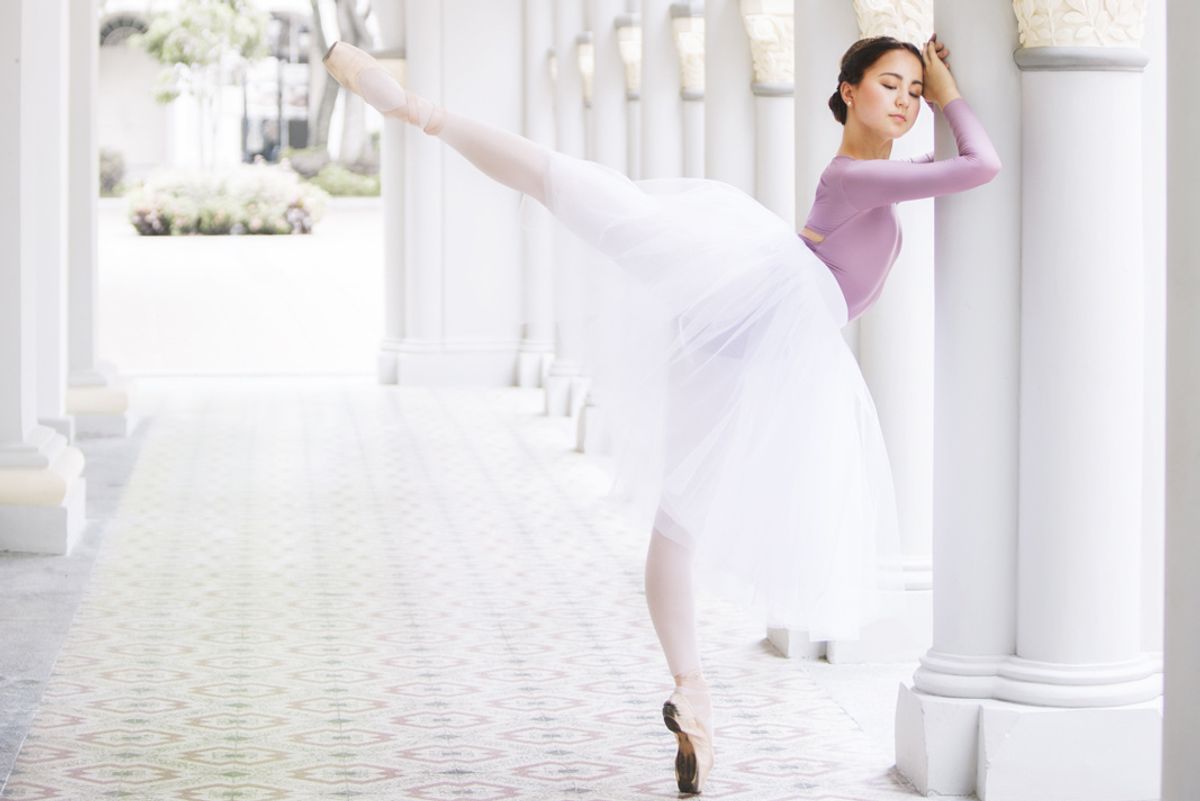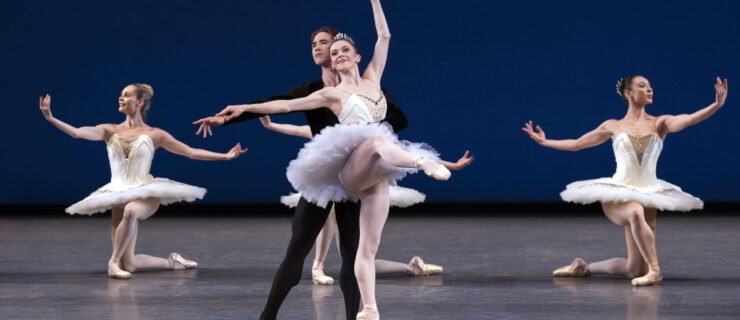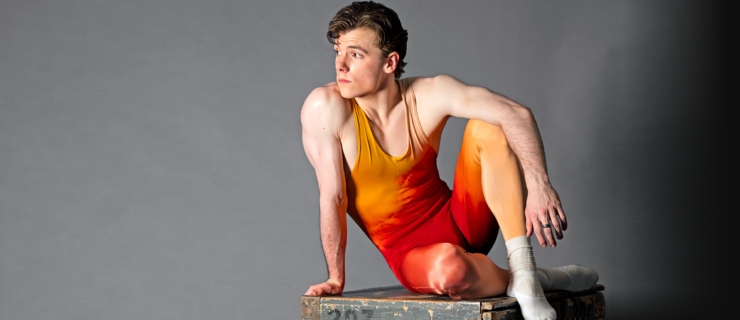Saying Goodbye to Ballet: How to Cope When You Reach a Turning Point
“I was living my dream, but I wasn’t happy,” recalls Alexandra Pullen. Since starting ballet at age 5, the Chicago native aspired to join American Ballet Theatre and dance the roles her mother, Ellen Krafft, had performed there a generation before. And she achieved it: Fast-tracked from the ABT Jacqueline Kennedy Onassis School to the Studio Company, and then to the main company, by 20 she’d performed her mother’s parts in Giselle and Don Quixote, toured the world, and attended galas and New York Fashion Week. And she was miserable.
“I was like, ‘How could I be unhappy? I’m taking barre next to Isabella Boylston,’ ” recalls Pullen, now 24. But anxiety, depression, body-image issues and the sheer grind of professional life took their toll. She left ABT for Colorado Ballet, thinking that she’d feel less stressed in a smaller company, but after two years there she quit altogether. “I was like, ‘My love for ballet is not worth constantly feeling ‘not enough.’ ”
Countless dancers find themselves at a crossroads when they question whether they still love dance, whether the sacrifices are worth it or whether a professional career is truly what they want—or truly possible. We spoke with three dancers who faced this crucial turning point and achieved the right balance of ballet in their lives.
 Alexandra Pullen felt apprehensive telling others that she was quitting dance. Shelly Xu, Courtesy Pullen.
Alexandra Pullen felt apprehensive telling others that she was quitting dance. Shelly Xu, Courtesy Pullen.
A Body Betrayed
Miko Fogarty was one of the world’s most famous teen ballerinas when she seemed to disappear from the public eye. A breakout star of the 2011 documentary First Position at age 12, she boasted a massive social-media following that tracked her from competitions in Varna and Moscow to galas in Indonesia, and she signed a corps contract with Birmingham Royal Ballet in 2015.
Her fans noticed she’d stopped posting on Instagram in 2017, but they had no idea what was really going on: Already enduring anxiety and depression, she was uncomfortable sharing that she’d left the company to pursue college. Additionally, Fogarty had developed disordered eating after going through a late puberty. “The pressure of being slim was really hard. I thought my body was disgusting,” Fogarty, now 22, says candidly. “One of the reasons I stopped ballet is I knew I would never be satisfied with myself mentally and physically in that career.”
Toby Diamond, PhD, the consulting psychologist for Pacific Northwest Ballet School, notes that this kind of perfectionism, even at top levels of ballet, can be problematic. “With perfectionism and rigid thinking, you lose the fun and the joy,” she says.
Julia McColligan, 22, experienced body issues of a different sort. She thrived on the intense training during her seven years at Manhattan Youth Ballet, but broke her ankle falling out of a pirouette midway through her freshman year of high school, and then developed tendonitis in both ankles. “I watched younger people pass me,” she says, which set her back mentally. McColligan was back onstage for the year-end performance and rededicated herself to training. “I was hoping there was some way of fulfilling my dream of becoming a professional,” she recalls. “But in my senior year I realized that wasn’t going to work out—I couldn’t put such strain on my body for the next 10 years. It took a lot of mental training to get my head around the fact that this was gonna be a new chapter in my life.”
 Julia McColligan, shown here in Manhattan Youth Ballet’s The Knickerbocker Suite, realized in high school that a professional dance career was unlikely. Erin Baiano, Courtesy McColligan.
Julia McColligan, shown here in Manhattan Youth Ballet’s The Knickerbocker Suite, realized in high school that a professional dance career was unlikely. Erin Baiano, Courtesy McColligan.
Is There More to Life Than Ballet?
Throughout her years at MYB, McColligan attended her local public high school in New Jersey and commuted to Manhattan for ballet classes. “My parents and I decided that I should have a life separate from the arts,” she says. “On the occasional Friday, I would miss class and go to a football game with my friends.” Along with providing a balanced social life and expanding her perspective, she says, “that experience made it easier to transition to college and basically start a brand-new life.”
Pullen and Fogarty, on the other hand, were homeschooled for part of their education, which allowed them to devote all their time to dancing—at a price. “I never got to explore other things, I never had the chance to understand what being a full person is,” says Pullen. Even basic chores were new to her. When she got a post-ballet barista job, she says, “I had to mop for the first time. Growing up, my mom never had me do chores. She was like, ‘Her body is her instrument.’ ”
The desire for a varied, well-rounded life is only natural, says Diamond. “There are so many reasons why students give up dance, and most of them are very healthy ones,” she says. And she’s heard them all: “Your body doesn’t want to go any further, you become bored, there are other things that you want to do.” Talent, she says, has little to do with it: “Sometimes very, very talented dancers do not choose this career. They have other things that they’re interested in, and ballet just takes up too much space.”
Victoria Mazzarelli, artistic director of The Nutmeg Ballet Conservatory, hopes students will be open-minded—and realistic. “Ballet can be a very difficult career,” says Mazzarelli, who danced with the Basel Ballet and Frankfurt Ballet. “As dancers get a little older and they get more experience, it gives them a different sense of where they want to go with their life.” The Nutmeg policy is to encourage seniors to apply to college in addition to auditioning for companies and pre-professional programs.
 Miko Fogarty is now studying integrative biology at University of California, Berkeley. Chloe Veltman/KQED, Courtesy Fogarty.
Miko Fogarty is now studying integrative biology at University of California, Berkeley. Chloe Veltman/KQED, Courtesy Fogarty.
Breaking the News
It can be daunting to tell parents, friends, teachers and artistic directors that you’re considering making a change. “My mom drove me to all those lessons, she taught me all those privates,” Pullen recalls. “She was like, ‘You’re wasting your talent.’ ”
However, “a student should never feel like they are letting anyone down should they decide not to continue dancing,” says Mazzarelli. “It’s okay to want to do other things, and it’s important to say that for yourself.”
That said, leaving ballet can feel like a major loss, and it’s okay to grieve. “After my last performance with MYB, I cried the whole way home,” says McColligan. “And a lot of that summer.” When she started at Loyola University Maryland that fall, she joined the dance team. “I threw myself into dancing jazz and hip hop—I had never done anything like that before. It opened my eyes to the fact that life goes on after you leave ballet.” She graduated in May 2019 with a bachelor’s degree in journalism, public relations and advertising, and is now pursuing a journalism career.
Finding Happiness After Ballet
While still in Birmingham, Fogarty decided she wanted a career in health science. “But I didn’t know if I even liked science classes, because I hadn’t taken a proper science class in years!” The first steps of her transition were two years in junior college back home in Northern California and counseling for her body-image issues. She’s now a senior at the University of California, Berkeley, majoring in integrative biology. “I haven’t regretted my decision once,” she says. “I miss certain aspects of ballet, but I’m so happy, and I feel so much healthier now, mentally and physically.” She keeps ballet in her life by giving private lessons, and she shared her journey at a TEDxBerkeley talk this past spring.
As for Pullen, she relocated to Los Angeles, where she’s studying yoga and earning a bachelor’s degree through St. Mary’s College of California’s LEAP program. And she’s slowly getting back into the art form she loves. “I had the itch to dance again,” she says, “so I’m going to make it happen. But on my own terms and in my own way.” Today, she credits ballet with much of her success and, indeed, her happiness. “As a dancer, you have so many strengths that you don’t even realize,” she says. “If you can do ballet, you can do anything.”
 In college at Loyola University of Maryland, Julia McColligan joined the dance team. Courtesy McColligan.
In college at Loyola University of Maryland, Julia McColligan joined the dance team. Courtesy McColligan.
Live Your Best Life Now
Creating a happy and balanced life now will help prevent ballet burnout.
Branch out. Spending time with non-ballet friends, volunteering and going to movies and concerts relieve stress and expand your awareness of the world.
Build self-esteem in a variety of ways. After leaving Colorado Ballet, Alexandra Pullen got an internship at Los Angeles Magazine. When her first article was published, she says, “it was amazing to feel competent and successful in a different realm.”
Be kind to your body. Pursuing unattainable “perfection” undermines health, damages self-esteem and takes the joy out of ballet. Today, Miko Fogarty says, “I am inspired by how amazing the human body is.”
If you want a ballet career, learn the ropes. “You have to make sure you can handle all the challenges that come with being a professional dancer,” says Manhattan Youth Ballet alumna Julia McColligan, from handling audition rejections to paying bills. The more you know in advance, the better you can prepare for a demanding career—or feel good about choosing a different path.
Take stock of everything you’ve gaining from ballet. “Ballet taught me discipline, respect, time management and teamwork, and what it means to work hard,” says McColligan. “It prepared me so much for life.”
 Alexandra Pullen. Shelly Xu, Courtesy Pullen.
Alexandra Pullen. Shelly Xu, Courtesy Pullen.
Opting Out
If you’re yearning to take a break, or considering quitting ballet altogether, here are some ways to promote a positive outcome.
Make a list. Toby Diamond, PhD, consulting psychologist with Pacific Northwest Ballet School, has students fold a piece of paper in half and write “Reasons for Staying in Ballet” on one side, and “Reasons for Leaving Ballet” on the other. “Put down anything you think of, even if it seems silly, like ‘I love the pink toe shoes,’ ” she says. Revisit your list after a month. Are your reasons for staying or leaving still relevant?
Make another list. “Before you quit, research what you want to do next,” recommends Miko Fogarty. A career coach can help narrow down your options.
Consider counseling. A psychologist can help you work through the grief and identity loss that can come with letting go of a lifelong dream.
Give it time. “I recommend to students that are having these quandaries that they finish the term,” says Diamond, “because closure is very helpful, and they could have a change of heart.”
Remember: It’s okay. “A lot of us are scared of change,” says Fogarty. “But sometimes change is the best thing you can do for yourself.”






